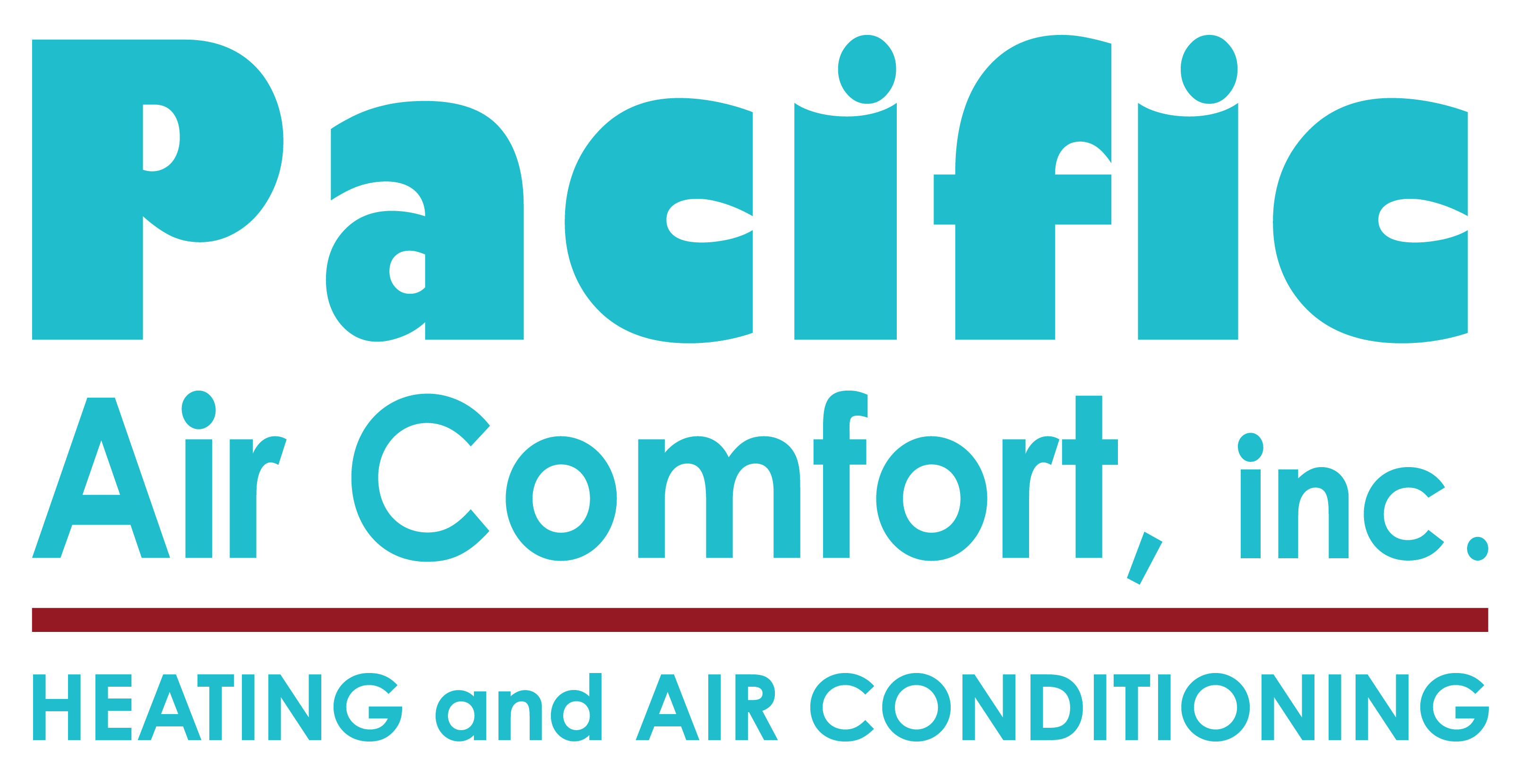Air conditioning systems are essential in maintaining comfort within our homes and workplaces, especially during the hot summer months in Roseburg. So what should you do when your AC unit starts making unusual noises, particularly a hissing sound.
We want you to be informed on how to address this so you can keep your air conditioning running in perfect shape.
Common Causes of a Hissing Sound from Your AC
1. Refrigerant Leaks
One of the most common causes of a hissing noise in an air conditioning unit is a refrigerant leak. The refrigerant is a vital component of your AC system, responsible for cooling the air. When there is a leak, the pressure within the refrigerant lines drops, leading to a hissing sound as the refrigerant escapes. This not only affects the cooling efficiency but also can cause the system to overheat, leading to more extensive damage if left unaddressed.
In addition to the hissing noise, signs of a refrigerant leak include reduced cooling performance, ice buildup on the evaporator coils, and higher-than-usual energy bills. It’s crucial to address refrigerant leaks promptly to prevent further damage and maintain the efficiency of your AC system.
2. Internal Valve Leaks
Your air conditioning system contains several valves that regulate the flow of refrigerant. If any of these valves develop a leak, it can produce a hissing sound. This is often a sign of a more significant issue within the system that needs to be addressed promptly. Valve leaks can disrupt the proper circulation of refrigerant, leading to inadequate cooling and increased wear on the compressor.
Ignoring valve leaks can result in more severe problems, such as compressor failure or damage to other components. Regular maintenance and inspections can help identify valve issues early, preventing costly repairs and ensuring your AC system operates efficiently.
3. High Pressure in the Compressor
The compressor is a critical component of your AC system, responsible for pressurizing the refrigerant. If there is excessive pressure build-up in the compressor, it can cause a hissing sound. This situation is dangerous and requires immediate attention from a professional technician. High pressure in the compressor can lead to system failure, posing a risk of damage to the entire AC unit.
Several factors can contribute to high pressure in the compressor, including dirty coils, faulty fans, or refrigerant overcharge. Addressing these issues promptly can prevent damage to the compressor and ensure the longevity of your AC system.
4. Duct Leaks
If the hissing sound is emanating from the ductwork, it could be due to air leaks in the ducts. These leaks can cause a loss of cooling efficiency and increase your energy bills, as the conditioned air escapes through the gaps. Duct leaks also lead to uneven cooling, making certain areas of your home less comfortable.
Regular inspection and maintenance of your ductwork can help identify and seal leaks, ensuring that your AC system operates efficiently. This not only improves comfort but also reduces energy costs and extends the lifespan of your system.
5. Expansion Valve Issues
The expansion valve regulates the flow of refrigerant into the evaporator coil. If there is a problem with this valve, it can cause a hissing sound as the refrigerant moves through the system unevenly. Issues with the expansion valve can lead to poor cooling performance and increased wear on the compressor.
Addressing expansion valve issues promptly can prevent more severe problems and ensure that your AC system operates efficiently. Regular maintenance and inspections can help identify and resolve expansion valve issues before they cause significant damage.
Diagnosing the Problem
To accurately diagnose the cause of the hissing sound from your AC unit, it is essential to follow a systematic approach:
- Turn Off the AC Unit: Before inspecting your system, ensure that it is turned off to prevent any potential hazards.
- Listen and Identify the Source: Try to pinpoint where the hissing sound is coming from. Is it from the indoor unit, outdoor unit, or the ducts?
- Check for Refrigerant Leaks: Look for any signs of refrigerant leaks, such as oily residue or frost on the refrigerant lines.
- Inspect the Ductwork: Examine the ductwork for any visible gaps or holes where air might be escaping.
- Consult a Professional: If you are unable to identify the issue, it is best to contact a professional HVAC technician for a thorough inspection. We would be happy to come out and inspect your AC unit. Contact us today
Solutions to Fix the Hissing Sound
1. Seal Refrigerant Leaks
If a refrigerant leak is causing the hissing sound, it is crucial to have it repaired by a professional. The technician will likely need to locate the leak, seal it, and recharge the refrigerant to the correct levels. This ensures that your system operates efficiently and prevents further damage.
The process of sealing refrigerant leaks involves using specialized tools and equipment to identify the leak’s location accurately. Once identified, the technician will repair the leak and test the system to ensure it is functioning correctly. Regular maintenance can help prevent refrigerant leaks and maintain the efficiency of your AC system.
2. Repair or Replace Valves
If the hissing sound is due to a faulty internal valve, the technician will need to repair or replace the malfunctioning component. This is not typically a DIY task, as it requires specialized knowledge and equipment. Proper valve function is essential for the efficient operation of your AC system, and addressing valve issues promptly can prevent more severe problems.
Replacing or repairing valves involves disassembling parts of the AC system, which should only be done by a qualified professional. Regular maintenance and inspections can help identify valve issues early, ensuring that your system operates efficiently and reliably.
3. Address High Pressure in the Compressor
If high pressure in the compressor is the culprit, the technician will need to relieve the pressure and identify the underlying cause. This may involve cleaning or replacing the compressor, or addressing issues with other components of the system. High pressure in the compressor can cause significant damage if left unaddressed, so it’s crucial to address this issue promptly.
Regular maintenance and inspections can help prevent high pressure in the compressor by ensuring that all components are clean and functioning correctly. This not only improves the efficiency of your system but also extends its lifespan.
4. Seal Duct Leaks
To fix air leaks in the ductwork, you can use mastic sealant or foil tape to seal any visible gaps or holes. In more severe cases, it may be necessary to replace sections of the ductwork. Sealing duct leaks improves cooling efficiency, reduces energy costs, and ensures even cooling throughout your home.
Regular inspection and maintenance of your ductwork can help identify leaks early, preventing more severe problems and ensuring that your AC system operates efficiently. This not only improves comfort but also reduces energy costs and extends the lifespan of your system.
5. Replace the Expansion Valve
If the expansion valve is causing the hissing sound, it may need to be replaced. A professional technician will be able to diagnose and perform this repair. Proper function of the expansion valve is essential for the efficient operation of your AC system, and addressing valve issues promptly can prevent more severe problems.
Regular maintenance and inspections can help identify expansion valve issues early, ensuring that your system operates efficiently and reliably. This not only improves cooling performance but also extends the lifespan of your AC system.
Preventive Measures
To prevent future occurrences of a hissing sound from your AC unit, consider the following preventive measures:
1. Regular Maintenance
Schedule regular maintenance with a professional HVAC technician. Routine inspections and tune-ups can help identify and address potential issues before they become significant problems. Regular maintenance ensures that your system operates efficiently and reliably, reducing the risk of unexpected breakdowns.
During maintenance visits, the technician will inspect all components of your AC system, clean coils, check refrigerant levels, and identify any potential issues. This proactive approach helps maintain the efficiency and longevity of your system.
2. Monitor Refrigerant Levels
Keep an eye on your system’s refrigerant levels. If you notice a decline, it could indicate a leak that needs to be addressed promptly. Monitoring refrigerant levels helps maintain the efficiency of your system and prevents more severe problems.
Regular maintenance and inspections can help identify refrigerant leaks early, ensuring that your system operates efficiently and reliably. This not only improves cooling performance but also extends the lifespan of your AC system.
3. Inspect Ductwork
Periodically inspect your ductwork for any signs of wear or damage. Address any issues as soon as they are discovered to prevent air leaks. Regular inspection and maintenance of your ductwork ensure that your system operates efficiently and reliably.
Sealing duct leaks improves cooling efficiency, reduces energy costs, and ensures even cooling throughout your home. This proactive approach helps maintain the efficiency and longevity of your system.
4. Clean the Coils
Ensure that the evaporator and condenser coils are clean and free of debris. Dirty coils can affect the efficiency of your system and potentially cause high pressure in the compressor. Regular cleaning of the coils helps maintain the efficiency and longevity of your system.
During maintenance visits, the technician will clean the coils and inspect them for any signs of wear or damage. This proactive approach helps maintain the efficiency and reliability of your system.
5. Replace Air Filters
Regularly replace the air filters in your AC unit. Clogged filters can restrict airflow and put additional strain on your system, leading to increased wear and tear. Replacing air filters improves cooling efficiency, reduces energy costs, and ensures that your system operates efficiently and reliably.
Regular maintenance and inspections can help identify and address any issues with your air filters, ensuring that your system operates efficiently and reliably. This proactive approach helps maintain the efficiency and longevity of your system.
Conclusion
A hissing sound from your AC unit can be a sign of various underlying issues, ranging from refrigerant leaks to high pressure in the compressor.
By understanding the potential causes and solutions, you can address the problem promptly and effectively.
Regular maintenance and prompt attention to any unusual noises can help ensure the longevity and efficiency of your air conditioning system, keeping your home cool and comfortable year-round.
If you are ever in doubt, do not hesitate to reach out to us at Pacific Air Comfort. We have a lot of positive reviews of happy customers.

